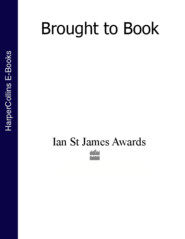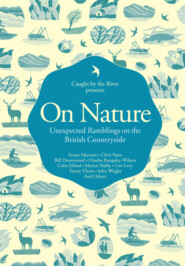По всем вопросам обращайтесь на: info@litportal.ru
(©) 2003-2025.
✖
In God’s Hands: The Spiritual Diaries of Pope St John Paul II
Автор
Год написания книги
2019
Настройки чтения
Размер шрифта
Высота строк
Поля
There are, so to speak, two planes: the divine plane (the love of the Son–Word for the Father) and the human plane (people’s yearning for the true God, for the revelation of God in the Son–Word). These two planes approach and come into contact with each other – this is the spirit of Advent.
My Advent (a reminder from last year): a strong wish for God–Christ to enter into every matter. In this context, there is the experimental meaning too: it is still in fieri [in the process of ‘becoming’] in me, in others, in an objective way and regarding its future sense.
6–7 July 196? [probably 1963] (#ulink_c980acea-e821-575b-b6e7-0990b3fcaf7e) Kalwaria – The Shrine of Our Lady
Aims:
1. To ask for peace and good for the Church of Kraków, efficacy of action, vocations.
2. To prepare the basis for the retreat.
3. To move forward certain tasks.
In general: preferably the form of reflection days (= meditation connected with other tasks).
Confession; Holy Mass; Meditation; The Way of the Cross; The Little Ways
(a) Numerous threads, reflective and ‘existential’. One needs to bring them all here and pass them into These Hands in accordance with the principle ‘Totus Tuus’ [‘Entirely Yours’].
(b) The main topic of the retreat emerges: ‘between past and future’.
19–23 [August] 1963 (#ulink_86515de4-b927-51a8-9e88-c5d1e7013682) Retreat in Tyniec
Topic: Justification – grace
19 August
Compline; Adoration; Meditation
20 August
Lauds; Prime
Meditation before Holy Mass:
1. Holy Mass brings the rhythm of Christ, the rhythm of the Son of God into our lives.
2. (The integrating role of consciousness – the disintegrating role of sensuousness.)
Holy Mass; Thanksgiving; Reading the Holy Scripture; Reading the Council schema; Meditation; The Way of the Cross
A reference to the previous retreat held in Rome on 31 October – [4] November 1962. The dogmatic topic that requires a deeper spiritual reflection is the mystery of justification (iustificatio). Man cannot be ‘just’ before God; he can only be ‘justified’ before Him. The former is proved by the fact that man is not equal to God, his Creator, and the latter by Christ and the entire order of grace.
No creature can be in a position of justice before its Creator. Man is in a way a synthesis of creatures. As a creature in general, he and his existence are unconditionally dependent on his Creator; he is dependent also by virtue of his nature and, consequently, unequivocally subordinate. As a being endowed with vegetative (sensual) life, he is subject to the laws of life and death (generatio et corruptio) like other creatures. As a spiritual being – a person – he bears a more special resemblance to the Creator, which obligates him to maintain the order of justice, i.e. to give to everybody what rightly belongs to them (which also includes paying religious worship to God). The fact of personhood does not render invalid man’s vegetativeness and animalitas [animal nature], which turns him into ‘ash and nothing’
before his Creator. As a person, man can enter into personal contact with the Creator; this contact, however, has to be initiated by the Creator. When He initiates it, it consists (like the act of creation) in an act of mercy, because man as a creature is fully dependent and subordinate. In particular, he needs to be justified because of his sin, which, as an offence to God, does harm to the very essence of this personal contact understood in the way it is understood and intended by the Creator – and it is His prerogative to define the essence of the contact He establishes with His rational creature.
Justification comes through Christ, the Son of God, who initiates this essential contact and gives it, to a certain extent, the qualities of His contact with the Father. Therefore, justification is expressed in us as the new esse [being] – ‘esse ad Patrem’ [‘being towards the Father’] (i.e. sanctifying grace), and the continuation of this personal contact consists in faith, hope and love.
Vespers
Adoration: Lord Jesus hid in the womb of Mother Mary, which He left as a human being – and in the womb of Mother Church, so that it could give birth to sons of God.
Rosary; Spiritual reading (G. Vann)
Meditation: I note down briefly: the (diocesan) bishop’s authority and vocation require, on the one hand, generosity and courage, and on the other hand, service to everybody and universal charity, in particular charity for priests. Regarding all these points: reservations. ‘Episcopatum desiderare’ [‘To aspire to the office of bishop’]
– but it cannot be ‘propter se’ [‘for oneself’]. Many things have yet to ‘burn out’ and ripen. Providence is sweet. Very useful reflections, and thereby quieting down.
Anticipated Matins
One more thing: what has a particular value is suffering for the sake of the matter – it brings more benefit than all the efforts. (Fr Pr.).
Reading; Rosary; Compline; Reading
21 August
Lauds; Prime; Rosary; Reflection; Holy Mass; Meditation
It happened that today I celebrated Holy Mass to mark the reception of the habit and profession at the Daughters of Divine Charity. It allowed me to bring yesterday’s topic – the mystery of justification – closer to the mystery of the Church. The Church – the mystical body of Christ – is, so to speak, ‘esse ad Patrem’ [‘being towards the Father’]. The sisters, who through their vows choose Christ for their bridegroom, in a special way enter into this ‘esse ad Patrem’ not only personally, but they also impress the sign of this ‘esse’ [‘being’] on the life of our entire society. Hence they are much needed by the Church and in the Church. In a way, they constitute its vertical core. At the same time, it needs to be observed that their special vocation and involvement stems from the mystery of justification. It is simultaneously the fruit and the realisation of this justification.
The Way of the Cross
Meditation: Although yesterday it was said that man – a creature – cannot be stricto sensu [in the strict sense] ‘just’ before God, but needs to be justified by Him, this justification nevertheless aims to create the type of relationship between man and God that consists in justice; in any case, it builds its elements and conditions. God wants man to be ‘just’ intrinsically (intrinsece) and not only ‘justified’ (extrinsically – extrinsece). This is indicated by a contrast with the reality of sin, which is an ‘offence to God’. If the Creator had placed his rational creature, man, entirely beyond the relationship of justice, sin would be impossible: An offence is to some extent a violation of justice with regard to a person (and also charity). The Creator gave primary justice to man through grace, and after the sin, He did not deprive him of the possibility of such a relationship. This possibility gestures towards the supernatural order, the order of grace, but it is grounded in the natural order: in the fact that man is a person.
Christ the Lord justified man, that is, helped and has been helping man to be just before God. Man is ‘just’ before God through ‘esse ad Patrem’, which is grace. The Church as the mystical Christ helps man achieve the same, because its task is to be the continuation of Christ and His work. Doing this, Christ and the Church simultaneously contribute to the fulfilment of human personhood. Man is fully a person when he is ‘justified’, that is ‘just’ before God. Without this – one could say – his personhood remains incomplete, it is unfulfilled.
Man was justified, because he could be (can be) and was (is) unjust before God. Whereas God wants – and He wants it through Christ – man to be just before Him, so indirectly He also wants him to be ‘made equal’ with regard to God – of course through grace. It seems to be the most essentially revealed (genuinely revealed) part of the entire ethics, and simultaneously the most essentially ethical (genuinely ethical) part of the entire revelation (theology!).
Vespers
Adoration: Christ hidden in the womb of the Church, so that He can reveal Himself to humankind. The grace of maturation.
Rosary; Meditation: casus [the case of] W. (T., I.) separately
Reading: De statibus perf. [On the stages of perfection]; Holy Scripture; G. Vann
Matins; Matins (II) for the Feast of the Immaculate Heart of the Blessed Virgin Mary; Compline
Moreover: thoughts of death!
22 August: Feast of the Immaculate Heart of the Blessed Virgin Mary
Lauds; Prime; Meditation; Holy Mass; Thanksgiving; Rosary; Conversation with Sister Aug.
Reading: Holy Scripture; schema De clericis [Concerning the clergy]
Meditation:











